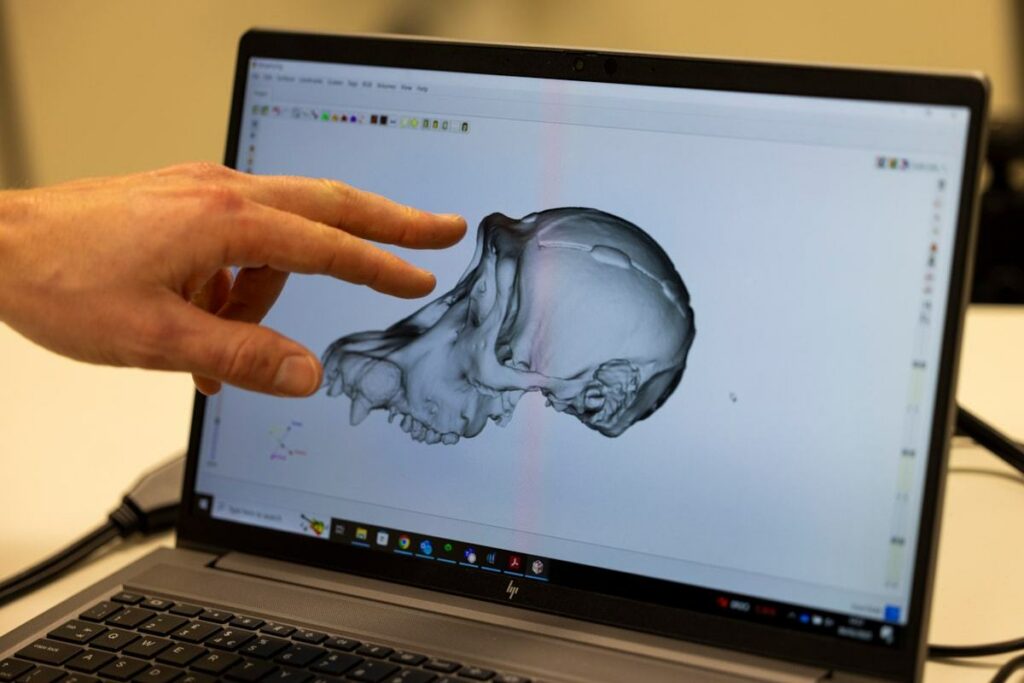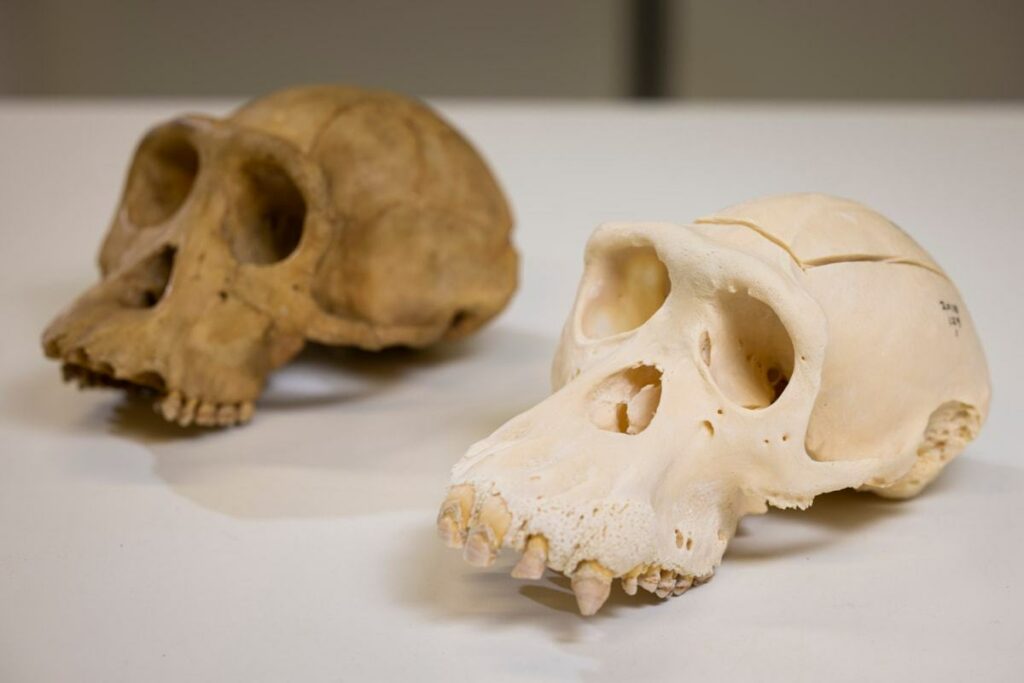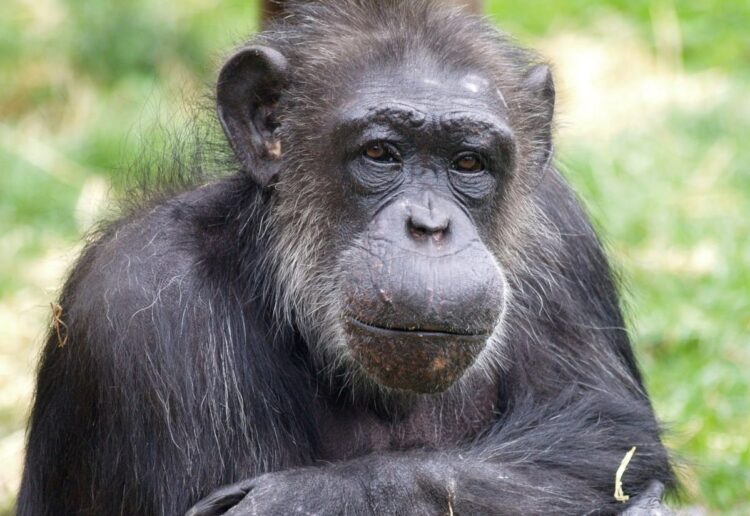A NEW study has uncovered the tumultuous early life of a chimpanzee that starred in iconic TV adverts from the 1970s.
The study, which included the work of researchers from the University of Reading, has revealed information about the early life of Choppers, a Western Chimpanzee.
The chimpanzee appeared as the character of grandmother Ada Lott in British television adverts for PG Tips when she was still a juvenile during the 1970s.
Now new research published in Scientific Reports has shown the results of examination of bone and tissue analysis through the use of cutting-edge scientific methods.
The study, led by scientists at National Museums Scotland have uncovered some of the events of her life from as far back as early infancy.
It was already known that Choppers had been rescued from poachers in Sierra Leone at the age of just six weeks.
Then she was brought to the UK and went on to appear in the series of adverts which featured a number of chimpanzees dressed in clothing, appearing to play musical instruments, drive cars, and perform jobs.
Choppers was cared for at Twycross Zoo in Leicestershire for over 40 years until her death in 2016.
What was previously unknown, however, was the extent of her experiences while young.
Researchers performed “osteobiographies”– the mapping of life experiences through the examination of bones– on her remains.

This methodology is rarely used on modern animal specimens, and the study formed the most comprehensive of such examinations on a zoo animal to date.
The technique is more commonly used in archaeology on human specimens to reconstruct events in their lives– including on the remains of Richard III–allowing researchers to make detailed inferences.
This osteobiography was created through the use of biogeochemical, pathological, and morphometric analytic techniques.
The findings of this study paint a rich picture of Choppers’ key life events, including evidence of traumatic injuries sustained when she was poached from the wild in infancy.
These would impact her throughout her life, impairing her movement and exacerbating degenerative issues associated with old age.
Isotopic analyses of Choppers’ tooth enamel indicate a distinct geographical and dietary shift between the ages of three and four, coinciding with her relocation to the UK.
In the following three years she played the grandmother character in the PG Tips adverts, despite her youth, before she was retired as she reached puberty at around six or seven years of age.
Scientists found Choppers’ upper jaw was significantly elongated when compared with that of wild chimpanzees, reflecting an early diet of sugary soft fruit.

In recent years, there has been a dramatic shift towards tougher, less sugary vegetables in the diets of zoo primates, which is leading to significant improvements in primate health and behaviour.
Among the contributors to the study were archaeologists from the University of Reading, including Dr Stuart Black.
Dr Black said: “The story in Choppers’ bones is amazing–we can see exactly when she moved from Africa to Britain through the changes in chemical fingerprints in her teeth.
“Her skeleton shows the injuries she got when she was taken from the wild as a baby. These marks stayed with her for life.
“It’s like reading a diary written in her bones; every major event left its trace.
“This tells us so much about what she went through, from infant to old age.”
























